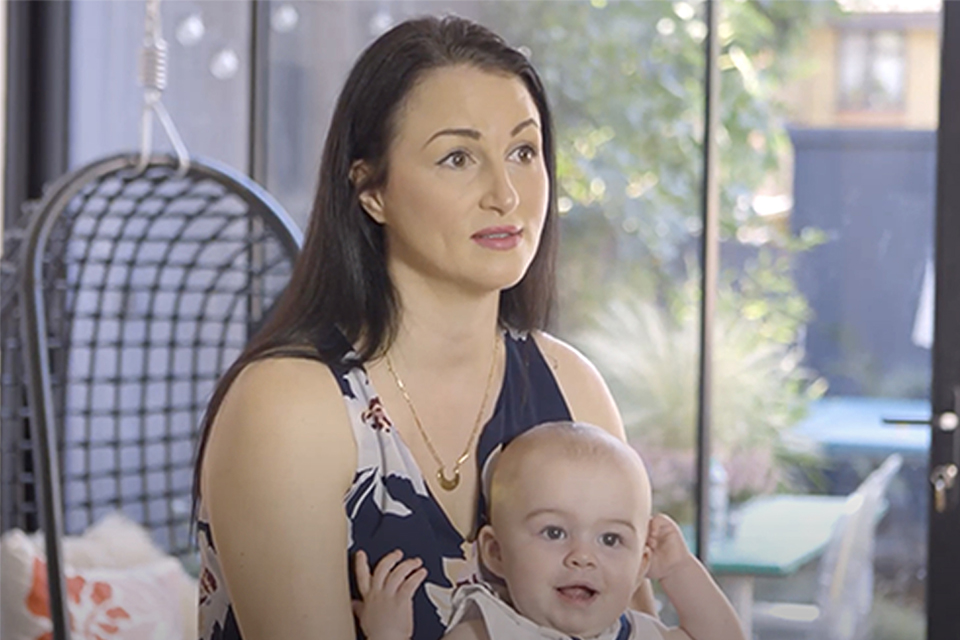Nearly a quarter of new mums say the workplace is “completely different”when they return to work.
A study of 1,000 mothers who have gone back to work after having a baby found 31 per cent found it harder than they expected to return to their job after an average of 10 months maternity leave. And almost a quarter found the working environment was nothing like the one they left behind before giving birth.
Almost one in five felt their boss and colleagues didn’t understand what they had been through – mentally and physically – with 14 per cent worried that this meant the effects of medical issues brought on by pregnancy and childbirth made them look unprofessional. While one in seven felt patronised by their male – and female – colleagues as they learned to juggle work and parenting. The study by TENA also revealed one in five women were even left in tears after just a few days of being back at work.
Lisa Myers, from TENA, said: “Returning to work after having a baby can be a huge adjustment for many women. Regardless of how much you loved your job, or how good you were at it before you had a baby, during that time away, however long or short your maternity leave was, your whole life has changed.
Your priorities are different and as you try to juggle childcare and your responsibilities as a parent with your job, you can feel isolated and as if no-one understands – particularly if your boss and colleagues don’t have children of their own. This is also made worse by the physical and mental effects of having a baby – many of which can still be affecting women months or even years later.
At a time when confidence levels may already be low as mums adjust to being back in the workplace after months away, issues such as post-natal incontinence can make that return to work even harder – especially with the taboo around it making it difficult to talk about.”
Following the findings, blogger Anna Whitehouse, AKA Mother Pukka, and comedian Athena Kugblenu have spoken about their experiences and the challenges of being working mums in a video.
The study also found that while 27 per cent of new mums felt excited at the prospect of returning to work, 52 per cent were worried and 37 per cent went as far as to say they were dreading it. And four in ten felt guilty about going to work instead of being at home with their baby.
Having to leave their child with someone else was the top concern for new mums about returning to their job, along with juggling childcare and the cost, and fitting back into their role. But 62 per cent were looking forward to earning money again and 43 per cent wanted to get back to having adult conversations.
However, the study found that of the 29 per cent who suffered from long-term after-effects from having a baby, such as post-natal incontinence or post-natal depression, just 22 per cent were completely open with their colleagues or boss. Of those who kept it to themselves, 53 per cent did so out of embarrassment while 55 per cent didn’t want others to think they weren’t up to the job. Others suffered in silence to avoid being treated differently because they had children (40 per cent), or not wanting to be overlooked for promotion or certain tasks (19 per cent).
A quarter of those who suffered long-term physical or mental effects of pregnancy and childbirth said it affected their career, with 32 per cent also feeling like their colleagues or boss treated them differently as a result of their issues. One respondent was advised not to go for higher level roles, as they were returning part time, while another mum felt that as they were unable to stay late due to childcare, they weren’t given certain jobs or tasks.
The study, carried out via OnePoll, also found 31 per cent feel Covid-19 will make it easier for women to return to work, with 53 per cent of those putting this down to it now being more acceptable to work from home, which makes childcare easier. And 42 per cent think the rise of working from home means it is easier for women to deal with the physical effects of having a baby. Almost half (49 per cent) think bosses have become more understanding of the pressures those with children face, while 39 per cent think they have become more understanding of everyone’s individual health issues.
Lisa Myers, from TENA, added: “The working landscape has changed considerably over the last few months – especially for those who are based in offices. And there are many who believe the rise of working from home will benefit those mums returning from maternity leave – especially if they are also dealing with the physical or mental effects of having a baby.”
For more information on mums returning to work after having a baby, including advice from Mother Pukka and Athena Kugblenu, click here.















